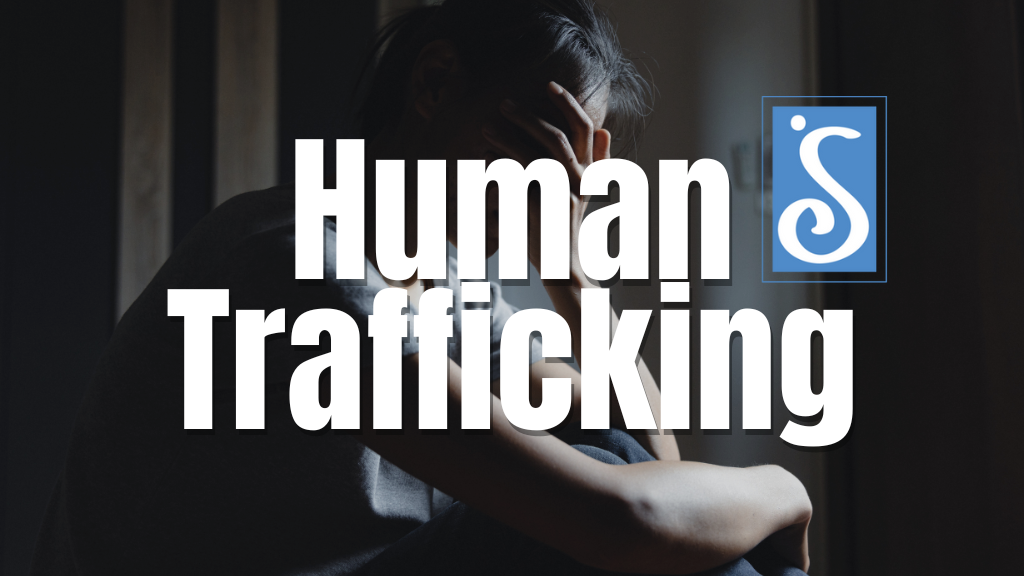Human Trafficking: Soroptimists Making a Difference
How Soroptimist International Supports Survivors and Fights for Change
Human trafficking is a devastating crime that affects millions of individuals worldwide, with women and girls disproportionately impacted. It’s often referred to as modern-day slavery, encompassing forced labor, sexual exploitation, and other forms of abuse. As one of the largest criminal enterprises globally, human trafficking exploits vulnerabilities like poverty, lack of education, and inequality.
For Soroptimist International of Borrego Springs, fighting human trafficking is not just a mission; it’s a responsibility. Soroptimists recognize that education and empowerment are critical tools in addressing the root causes of trafficking and helping survivors rebuild their lives.
Understanding the Impact of Trafficking
Victims of trafficking often experience manipulation, coercion, and abuse—sometimes at the hands of people they know and trust. Traffickers prey on vulnerabilities, targeting individuals facing poverty, homelessness, or displacement. The trauma of trafficking can leave lasting scars, making recovery a challenging process.
Statistics highlight the urgent need for action:
For every 10 identified victims of trafficking, five are adult women, and two are girls.
Globally, an estimated 28 to 50 million individuals are trafficked, though the true numbers remain unknown.
Despite these daunting figures, Soroptimist clubs worldwide are determined to make a difference.
How Soroptimists Are Fighting Back
Soroptimist International, including our local Borrego Springs chapter, takes a multifaceted approach to combat human trafficking. Our efforts include:
Raising Awareness: January is Human Trafficking Awareness Month, and Soroptimists work to educate the public about this critical issue. We share information, host events, and encourage our community to recognize the signs of trafficking.
Empowering Survivors Through Education: Education is key to breaking the cycle of exploitation. Soroptimist programs, such as the Live Your Dream Awards, provide financial support to women pursuing higher education, giving survivors a pathway to independence and stability.
Advocating for Change: Soroptimist International advocates globally for stronger protections for trafficking victims and survivors. By working with local and international organizations, we amplify the voices of those who have been impacted.
Providing Local Support: Here in Borrego Springs, our club focuses on initiatives that promote access to education and economic empowerment for women and girls. These efforts help reduce vulnerabilities that traffickers often exploit.
How You Can Help
The fight against human trafficking requires all of us. Here’s how you can get involved:
Learn more about the signs of trafficking and share this knowledge with others.
Support Soroptimist programs that provide education and resources for survivors.
Use your voice to advocate for policies that protect victims and hold traffickers accountable.
Helpful Resources
For immediate assistance, contact the National Human Trafficking Hotline by:
Phone number: 1-888-373-7888
Text: "BEFREE" (233733)
Phone number for hearing- or speech-impaired callers: Dial 711
Report Tip by Email: humantraffickinghotline.org/report-trafficking
Visit website: humantraffickinghotline.org
International Organizations:
Global Estimates of Modern Slavery (International Labour Organization)
Government and Legal Resources:
The Blue Campaign (DHS)
Human Trafficking 101 (DHS)
Educational Resources:
By working together, we can make a tangible impact in the fight against human trafficking and support survivors on their path to recovery.
Visit National Human Trafficking Hotline website to get statistics specific to human trafficking.
Key U.S. Legislation on Human Trafficking
Modern U.S. efforts to combat human trafficking stem from the 13th Amendment (1865), which abolished slavery and involuntary servitude. Early cases were prosecuted under limited federal statutes, but since 2000, Congress has passed comprehensive laws to enhance the fight against trafficking. Below are significant legislative milestones:
Trafficking Victims Protection Act (TVPA) of 2000: The cornerstone of modern anti-trafficking laws, it established prevention, protection, and prosecution measures.
Reauthorization Acts (2003, 2005, 2008, 2013, 2017): Expanded the TVPA, increasing protections, victim services, and international collaboration.
Justice for Victims of Trafficking Act (2015): Enhanced penalties for traffickers and created funds for victim assistance.
Frederick Douglass Act (2018): Strengthened prevention and protection measures while honoring anti-slavery pioneer Frederick Douglass.
These laws reflect the U.S. government’s commitment to eradicating trafficking through comprehensive legal frameworks.
Learn More: Key Human Trafficking Legislation





